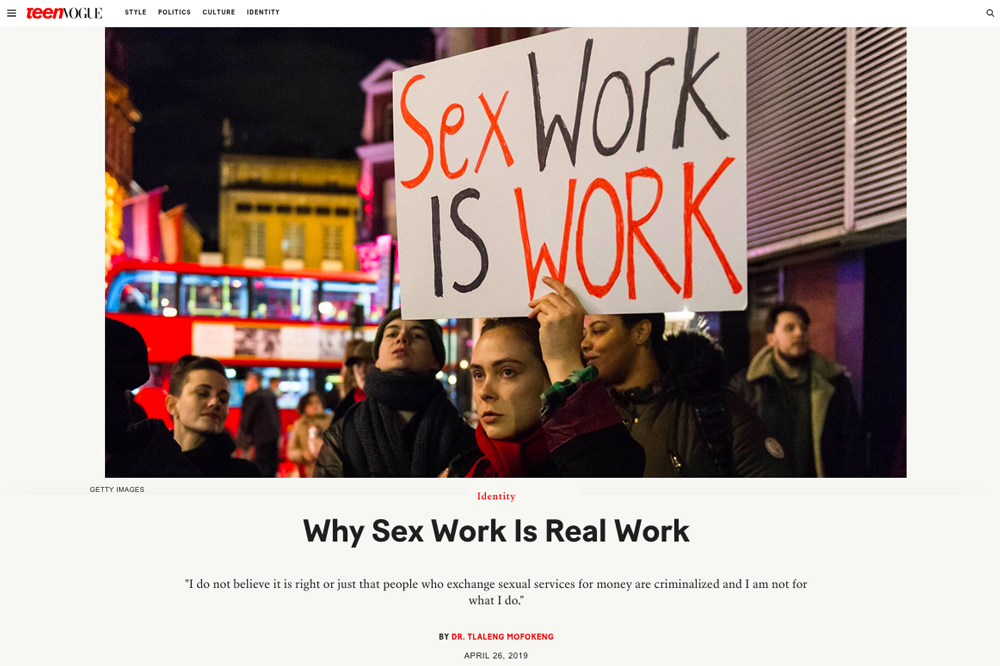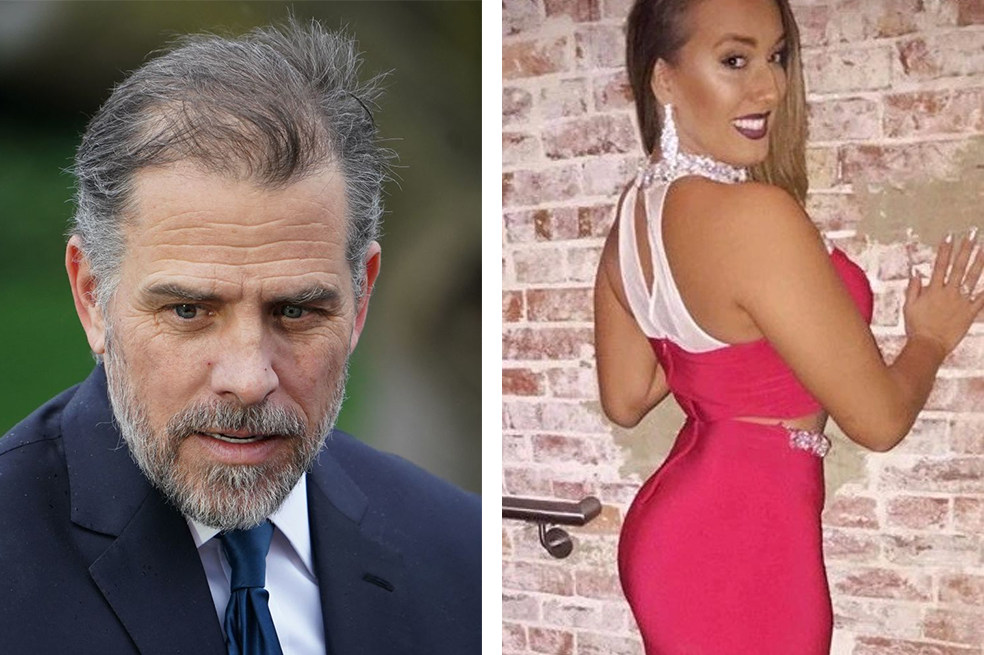Sex work is real work, says Teen Vogue, that bastion of female-forward journalism — and apparently a valid career move. Calling prostitution ‘sex work’ and approving of sex work are part of the progressive political platform. The push back against reactionaries who believe women should not be sell their bodies is swift and fierce. Teen Vogue is spearheading a change in how girls see themselves, their sexuality, and their bodies.
Tlaleng Mofokeng, the doctor who wrote ‘Why Sex Work is Real Work’, argues for countries to adopt a system where it’s illegal to buy sex, but not to sell it. Prostitution is not in decline, and until sex-doll brothels really take off, it’s unlikely to be. Sex work advocates are offended when human trafficking is equated to consensual sex work, despite the obvious overlaps. While some high-end escorts ‘pay more in taxes than the average person makes as a salary in the year’, according to the podcast Criminal, being a sex worker still carries a stigma. Teen Vogue doesn’t think it should.
To make this case, Mofokeng downplays what prostitution really means, and what it actually is. ‘I am a doctor, an expert in sexual health,’ she writes, ‘but when you think about it, aren’t I a sex worker? And in some ways, aren’t we all?’
No, she isn’t, and neither are almost all of us.
‘Evidence, not morality, should guide law reforms and sex work policy for full sex work decriminalization,’ Mofokeng writes — leaving out any concern for victims of trafficking.
If the fields of sex work and medicine are both about helping people, girls should probably give equal weight to a career in either field. If Teen Vogue had its way, girls could major in sex work and take classes on the history of porn.
How the feminist political platform became pro-prostitution is not a mystery. Women make up the majority of global sex workers. The destruction of sexual taboos in the Sixties paved the way for all manner of sexual objectification to be admissible. The ‘evidence’ of desire, not ‘morality’, became as the legitimizing factor. Feminists who oppose sex-trafficking, illicit or not, are branded as stodgy and anti-woman. Sex-work advocates fall into a tizzy of accusations and vilifications at the mere mention of trafficking.
Selling the profession of sex work is just one of the areas of taboo-free sexual liberation that Teen Vogue is pushing on girls. In 2018, it published a guide to anal sex. In this ‘Anal 101, for teens, beginners, and all inquisitive folk’, author Gigi Engle details the benefits of anal sex for ‘vagina owners’, seeking to allay the shame around anal sex. Girls are under masses of pressure to perform sexually. Having a trusted magazine promote anal sex as ‘delightful’ doesn’t help teenage girls to find a good reason to say no.
While Teen Vogue helps girls figure out how to circumvent laws require parental consent for abortions, it also rails against underage marriage. Apparently, girls should not need parental approval to terminate pregnancy, but consenting to underage marriage is off the table. The evidence is that underage kids aren’t ready to make these kinds of decisions solo. They could use parents, not the editors at Teen Vogue, to provide some real guidance.
Teen Vogue publishes progressive takes on trendy sex and gender identity topics to further confuse young girls about what is expected of them, their bodies, and their consent. Sexual norms and taboos have shifted dramatically in the last half-century, but advocates for further change pretend it’s always been so. Teen Vogue‘s article on polyamory tells readers that ‘polyamory has a rich history’, that it’s basically always been normal — which is false.
A super informative Teen Vogue video called ‘5 Misconceptions About Sex and Gender‘ asks ‘Is there something called biological sex, and what does that mean?’ The answer, inevitably: ‘This idea that the body is either male or female is totally wrong.’
‘We all have characteristics that are typically male, and typically female, and it’s really about political choices, social factors, ideological choices, that we assign meaning to different parts of our bodies,’ an ACLU lawyer says, extending the pretense. The message to girls is that their bodies have no intrinsic meaning or value.
Teen Vogue now bears the mantle of the traditional girls’ magazine, with celeb gossip and beauty tips, spiced with some sex ed. But it ignores the lived experience of women and girls. It opts instead to instruct them on how to achieve high-status alternative lifestyle goals. Giving girls the message that they’re beautiful and valuable just the way they are would do a lot more toward building their confidence. Instead, Teen Vogue steers girls into a life of confusion about their bodies, cultural expectations, and sex.

























